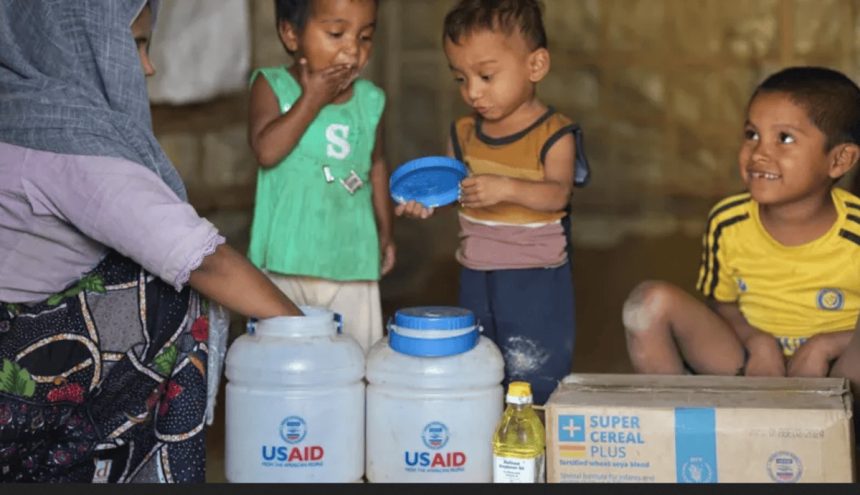US President, Donald Trump’s decision to slash most of the United States’ humanitarian aid could result in over 14 million preventable deaths by 2030, according to a new report published in The Lancet medical journal.
Researchers estimate that one-third of those at risk would be children.
Davide Rasella, a co-author of the report, said low- and middle-income countries face a shock “comparable in scale to a global pandemic or a major armed conflict.”
US Secretary of State Marco Rubio announced in March that more than 80% of programmes under the US Agency for International Development (USAID) had been cancelled.
The Trump administration argues the cuts target what it views as wasteful spending.
The controversial rollback—heavily criticised by humanitarian groups—was led by billionaire Elon Musk. He was overseeing an initiative to shrink the federal workforce.
Throughout his second term, Trump has stressed his “America First” approach, saying foreign spending should align with US priorities.
Rasella warned that the USAID cuts “risk abruptly halting – and even reversing – two decades of progress in health among vulnerable populations.”
The study estimates USAID interventions prevented more than 90 million deaths in developing nations between 2001 and 2021.
Assuming an 83% funding cut, the researchers project over 14 million additional deaths by 2030—including 4.5 million children under age five.
The report was released as world leaders gather in Seville, Spain, for a major UN-led aid summit. The United States is not expected to attend.
The US has historically been the world’s largest humanitarian donor. It spent $68 billion on foreign aid in 2023, operating in more than 60 countries.
After Trump’s cuts, other major donors—such as the UK, France, and Germany—also reduced their aid contributions.
The United Nations recently described the situation as “the deepest funding cuts ever to hit the international humanitarian sector.”
Rubio has said around 1,000 remaining programmes will be managed more “effectively” under the State Department, with input from Congress.
Still, humanitarian conditions have continued to worsen.
A UN official told the BBC that in Kenya’s refugee camps, hundreds of thousands are “slowly starving” due to reduced food rations.
At a hospital in Kakuma, northwestern Kenya, the BBC saw a baby suffering from severe malnutrition—her skin wrinkled and peeling.
(BBC)
ALSO READ TOP STORIES FROM NIGERIAN TRIBUNE
WATCH TOP VIDEOS FROM NIGERIAN TRIBUNE TV
- Let’s Talk About SELF-AWARENESS
- Is Your Confidence Mistaken for Pride? Let’s talk about it
- Is Etiquette About Perfection…Or Just Not Being Rude?
- Top Psychologist Reveal 3 Signs You’re Struggling With Imposter Syndrome
- Do You Pick Up Work-Related Calls at Midnight or Never? Let’s Talk About Boundaries







